AI for Quality Control in Smart Factories
Chemical manufacturing facilities are constantly seeking ways to improve efficiency, reduce costs, and enhance product quality. To achieve these objectives, Production Planners play a pivotal role in the overall success of the operation. In recent years, the integration of Artificial Intelligence (AI) into quality control processes has emerged as a game-changer, revolutionizing how chemical manufacturing plants ensure the highest standards of product quality while optimizing production planning.
This blog will look into the world of AI for Quality Control in Smart Factories, with a focus on Production Planning and the integration of advanced planning tools like PlanetTogether with prominent ERP, SCM, and MES systems like SAP, Oracle, Microsoft, Kinaxis, and Aveva.
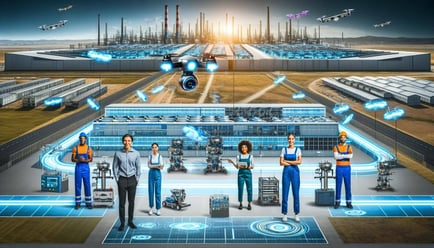
The Rise of Smart Factories
Smart Factories, often referred to as Industry 4.0, represent the next evolution of manufacturing facilities. These are highly interconnected and data-driven environments where cutting-edge technologies like AI, the Internet of Things (IoT), and advanced analytics converge to optimize operations.
Here are some key elements of Smart Factories:
IoT Sensors: Sensors are strategically placed throughout the facility to monitor various parameters like temperature, pressure, humidity, and more. These sensors provide real-time data, enabling better decision-making.
Big Data Analytics: The massive amount of data generated by IoT sensors is processed using advanced analytics tools. This data helps in identifying patterns, anomalies, and opportunities for improvement.
AI and Machine Learning: AI and machine learning algorithms are employed to make sense of the data and predict outcomes. This technology enables predictive maintenance, quality control, and optimized production planning.
Automation and Robotics: Smart Factories embrace automation and robotics for tasks ranging from assembly and packaging to quality inspections.
Integration with ERP, SCM, and MES Systems: To ensure seamless operations and data flow, Smart Factories integrate with ERP (Enterprise Resource Planning), SCM (Supply Chain Management), and MES (Manufacturing Execution Systems) systems.

The Importance of Quality Control in Chemical Manufacturing
Quality control is a critical aspect of chemical manufacturing. Ensuring the highest product quality is not only a regulatory requirement but also a matter of customer satisfaction and brand reputation. Traditional quality control methods involve manual inspections and testing, which can be time-consuming, costly, and prone to human error.
AI-driven quality control offers a more efficient and accurate alternative. It leverages advanced algorithms to monitor, analyze, and enhance product quality at various stages of production, from raw material handling to final product inspection.

AI for Quality Control: The Basics
AI for Quality Control in chemical manufacturing involves the application of AI and machine learning techniques to automate and optimize quality assurance processes. Here's how it works:
Data Collection: IoT sensors and other data sources continuously collect data throughout the production process. This data can include temperature, pressure, chemical composition, and more.
Data Processing: The collected data is processed in real-time or near-real-time. AI algorithms analyze the data for any deviations from expected norms or predefined quality standards.
Alerts and Notifications: If any anomalies are detected, the system triggers alerts or notifications to relevant personnel, including Production Planners. These alerts can indicate potential issues in the production process.
Predictive Maintenance: AI can also predict when equipment is likely to fail or require maintenance, preventing unexpected downtime and production disruptions.
Optimized Production Planning: AI for Quality Control doesn't operate in isolation. It's closely integrated with production planning systems to ensure that any adjustments in the production process are factored into the schedule.
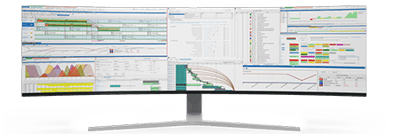
Integration with PlanetTogether and ERP, SCM, and MES Systems
To fully leverage the capabilities of AI for Quality Control in Smart Factories, Production Planners need a robust production planning tool. PlanetTogether is one such advanced planning and scheduling software that plays a crucial role in optimizing production in chemical manufacturing facilities.
The integration of PlanetTogether with ERP, SCM, and MES systems such as SAP, Oracle, Microsoft, Kinaxis, and Aveva is pivotal. Here's how this integration can transform production planning in chemical manufacturing:
Real-time Data Flow
Integration ensures that real-time data flows seamlessly between PlanetTogether and other systems. This data includes production schedules, inventory levels, order status, and quality control data.
For example, when a quality control alert is generated by AI, it can automatically trigger adjustments in the production schedule within PlanetTogether. This ensures that the production plan is adapted to maintain product quality while minimizing delays.
Improved Decision-making
Production Planners benefit from a holistic view of the manufacturing process. They can make informed decisions based on up-to-the-minute data from various sources. This includes adjusting production schedules based on quality control alerts or optimizing inventory levels to meet customer demand.
Predictive Analytics
Integration with AI and machine learning algorithms allows PlanetTogether to make predictions about future production issues. This enables proactive planning and reduces the chances of quality-related disruptions.
For example, if historical data indicates that certain raw materials are prone to quality fluctuations during a particular season, PlanetTogether can suggest adjustments to the production plan well in advance.
Enhanced Efficiency
By integrating production planning with quality control and other systems, chemical manufacturing facilities can achieve greater efficiency. This includes minimizing waste, optimizing resource utilization, and reducing production costs.
Compliance and Reporting
Integration ensures that data necessary for regulatory compliance and reporting is readily available. This simplifies the process of maintaining accurate records and demonstrating adherence to quality standards.
Adaptability to Market Changes
Integration with ERP and SCM systems allows Production Planners to adapt quickly to market changes. Whether it's a sudden increase in demand or a supplier issue, the production plan can be adjusted promptly to maintain product quality and meet customer expectations.
Challenges and Considerations
While the integration of AI for Quality Control with advanced planning tools like PlanetTogether and ERP, SCM, and MES systems offers numerous benefits, it's essential to acknowledge and address potential challenges:
Data Security: Protecting sensitive production and quality data is paramount. Robust security measures must be in place to safeguard against unauthorized access or data breaches.
Training and Skill Development: Implementing AI and advanced planning tools may require training and upskilling of personnel. Production Planners must be well-versed in using these technologies effectively.
Compatibility: Ensuring seamless integration between different systems can be a complex task. Compatibility issues must be addressed during the planning and implementation stages.
Costs: While the long-term benefits of AI integration are significant, there can be initial costs associated with technology adoption, including software licenses, hardware upgrades, and training expenses.
Change Management: Employees may resist changes in their workflow. Effective change management strategies should be employed to ensure a smooth transition to the integrated system.
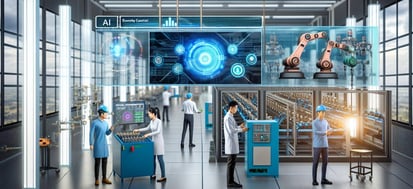
The Future of AI for Quality Control in Smart Factories
The journey towards AI-driven quality control in chemical manufacturing is just beginning. As technology continues to advance, we can expect even more significant transformations in the industry:
Greater Automation: AI algorithms will become more sophisticated, enabling even higher levels of automation in quality control processes.
Improved Predictive Analytics: Machine learning will evolve to provide more accurate predictions, reducing the likelihood of production disruptions.
Enhanced Customization: AI systems will be tailored to the specific needs of each chemical manufacturing facility, optimizing quality control for various products and processes.
Seamless Integration: Integration between planning tools, ERP, SCM, and MES systems will become even more seamless, enabling real-time decision-making and adaptability.
Cost Reduction: As AI technology matures, the costs associated with its implementation are expected to decrease, making it more accessible to smaller manufacturers.
AI for Quality Control in Smart Factories is revolutionizing the way chemical manufacturing facilities operate. Production Planners are at the forefront of this transformation, leveraging advanced planning tools like PlanetTogether and integrating them with ERP, SCM, and MES systems to ensure the highest standards of product quality while optimizing production planning.
The benefits of this integration are clear: improved efficiency, reduced costs, enhanced product quality, and greater agility in responding to market dynamics. While challenges exist, the potential for growth and competitiveness in the chemical manufacturing industry is substantial.
As technology continues to evolve, embracing AI for Quality Control will not be a choice but a necessity for chemical manufacturers aiming to stay ahead in an increasingly competitive market. The future of manufacturing is smart, and it's driven by AI.
Are you ready to take your manufacturing operations to the next level? Contact us today to learn more about how PlanetTogether can help you achieve your goals and drive success in your industry.
Topics: PlanetTogether Software, Enhanced Efficiency, Integrating PlanetTogether, Adaptability to Market Changes, Improved Decision-Making and Agility, Regulatory Compliance and Reporting, Real-Time Data Flow, Utilize Predictive Analytics, Chemical Manufacturing, AI for Quality Control in Smart Factories







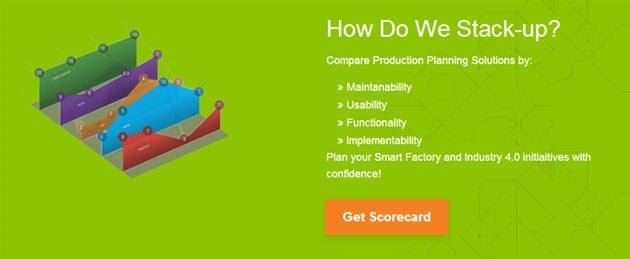


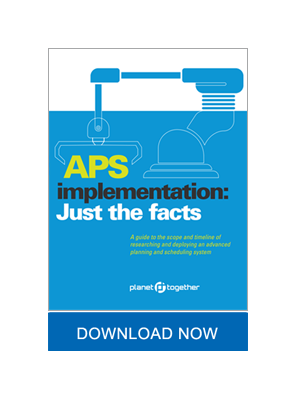
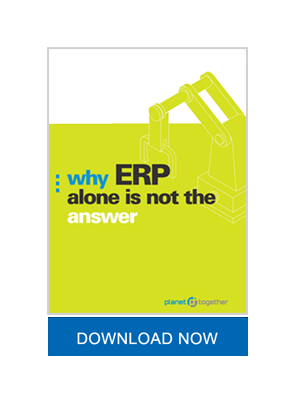







LEAVE A COMMENT